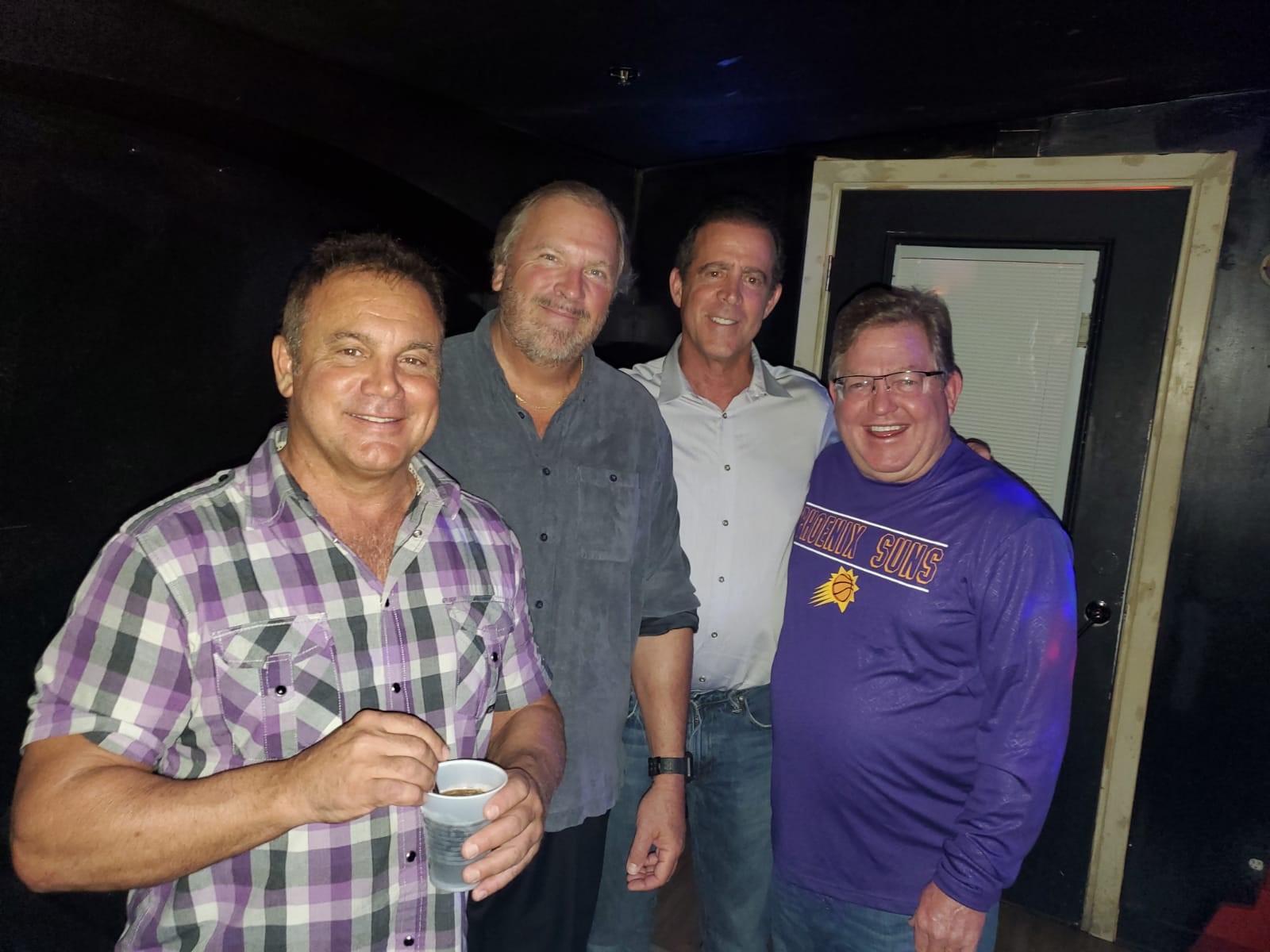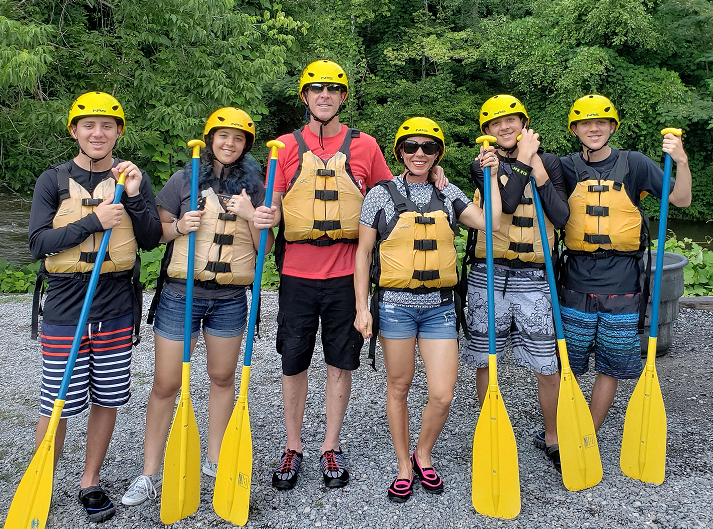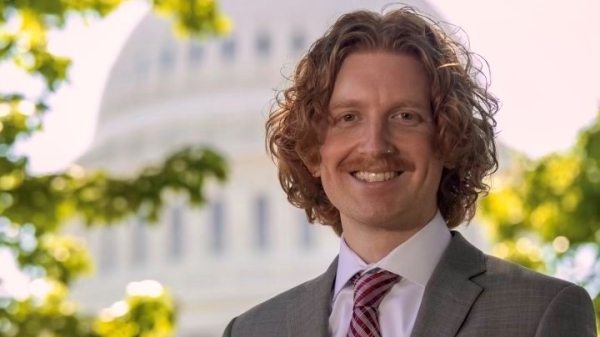ER doctor, ASU alum prescribes communication degree for success in medicine

Dr. Keith Gould in his office.
When communication alumnus Keith Gould started out at Arizona State University in 1984, he didn’t know if he wanted to be a stockbroker or a doctor and began taking classes in political science and chemistry. But it wasn’t until a friend talked him into taking Communication 101 that he realized he wanted to major in communication.
“My friend told me Communication 101 would be a blow-off course, an easy A,” said Gould. “When I received a ‘C’ on my first test, I thought, ‘Wait a minute, I thought this class was supposed to be easy!’”
Gould then approached his professor and asked what he needed to do to get an “A” in the class.
“I think he saw my passion for learning because he worked with me and encouraged me to bring my grade up," Gould said. "He even asked me to be a teaching assistant for his class the next semester.”
For a career in medicine, Gould, now an emergency room physician, realized the importance of good communication based on a few negative experiences with doctors while in school.
“Two doctors I had seen for separate issues didn’t take the time to really talk to me, and as a result, the outcomes were less than ideal,” Gould said. “I then realized then the importance of good communication, and knew I didn’t want to practice medicine like them.”
Gould says it was unusual back then for premed students to major in communication. “Now people tell me all the time it was a smart move.”
Gould, who lives in Florida, has twins who are juniors in high school. His son wants to be an engineer, and his daughter wants to be a doctor and minor in art. They are also interested in Barrett, The Honors College.
“I had a great experience going to ASU,” Gould said. “I loved my major. The variety of classes and majors at ASU is another plus that you don’t find at smaller colleges.”
Question: What do you like about your job?
A: I like that I deal with different people all day long and can make an actual difference in their lives. Not only with my medical knowledge to treat them, but also with what I learned in my communication major. Those communication skills enhance my patients' experience in the emergency room.
Q: What was your "aha" moment, when you realized you wanted to study the field you majored in?
A: After my first communication class, I realized I wanted to take more courses. After seeing all that was available, I realized there were many classes that would help me in my future career as a physician. In the past, I had experienced physicians who were rude, arrogant and poor communicators, and wanted to make sure I did not exhibit that same behavior.

Keith Gould, third from left, recently reunited with three friends from ASU.
Q: What made you choose ASU?
A: I wanted to go to a large school that had more opportunities for different types of courses. I visited Arizona State and found not only did the school have every imaginative major, but the area was also beautiful and the climate was warm.
Q: What were the most useful classes you took?
A: There were several classes in different departments. My nonverbal communication class was extremely valuable to help me read people's emotions, a skill I rely on daily in the emergency room. Sociology of deviant behavior helps me understand that the way I see the world is not necessarily the same way others do. Medical communication, somewhat self-explanatory, deals with the different ways to help foster communication with patients. Basic communication classes helped me refine my speaking ability and helped me to understand how people can perceive things differently.
Q: How did this school help prepare you for your current career?
A: By developing my communication skills, I have been able to alleviate some of the problems health care providers often face. When speaking to patients and their families, I can not only convey the medical issues they have, I am also able to discuss possible outcomes and alleviate their fears. This, in turn, makes treatment more effective as they are more likely to follow my advice.
Q: When you were interviewing for your first job out of college, what experiences at this school did you talk about? Internships? Group projects? Study abroad?
A: When interviewing for medical school I was frequently asked why I did not major in science and why I chose communication. I would explain that communication helped prepare me for a career in medicine and would make me a better physician. I knew I would learn to be a doctor in medical school, but not how to communicate effectively. At that time my answers were not well received, as they thought I was just looking for easier courses, despite the fact that I received all “A’s” in my science classes. I discussed with them the different classes I had taken, including nonverbal communication, medical communication, as well as sociology and psychology classes that would help bolster my communication with patients. They eventually did express an understanding of how these classes would be useful to a doctor. Now, I hear all the time from people what a smart move it was for me to major in communication.
Q: Were you involved in any student organizations or clubs? Or athletics?
A: Alpha Epsilon Delta, the premed honor society, as well as Beta Theta Pi fraternity. I was also involved in student government in various roles and was a student senator from The College of Liberal Arts and Sciences.

The Gould family.
Q: What advice do you have for students who may be following your path?
A: Even though there is a lot of pressure to be a science major when you are applying to medical school, this is gradually changing. We are finding that the ability of physicians to communicate effectively with their patients and their families is very important, and I encourage other health care providers to stick with their decision to major in communication. It's better to learn effective communication before medical school because once you are working, it's more difficult to change your work patterns.
Q: What's something you learned while at ASU — in the classroom or otherwise — that surprised you, or that changed your perspective?
A: In one of my communication classes, we were given an assignment to do something unusual and report back on people's reactions. At the time, there was a big fountain near the (Memorial Union) and I talked my roommate putting on our bathing suits and floating in the fountain in inner tubes. I had received permission from ASU to do this class project, but apparently, no one told campus police. Most people watching us float in the fountain laughed at us, and others expressed concern that we were going to get in trouble. One person ended up calling the campus police, and my roommate said: “I thought you got permission!” They ended up letting us go, once I explained it was for a class. I still have the student newspaper with our picture in it. I was a little disappointed the fountain isn’t there anymore, I wanted to point that out to my family.
Q: What was your favorite spot on campus, whether for studying, meeting friends or just thinking about life?
A: The fountain outside the Memorial Union. I would like to sit there and watch everyone passing by and everything that was happening. It was a nice place to relax.
Q: If someone gave you $40 million to solve one problem on our planet, what would you tackle?
A: Clean water. The lack of access to clean water across the world is a huge source of death and disease, disproportionately affecting infants and children.
More Sun Devil community

ASU grad combines academics, public service and entrepreneurship
Editor’s note: This story is part of a series of profiles of notable fall 2024 graduates.As a youngster, Javier Aguirre…

ASU Outstanding Graduate plants the seeds of change advancing food sustainability through public policy
Editor’s note: This story is part of a series of profiles of notable fall 2024 graduates.Growing up in the “farm-to-…

ASU Outstanding Undergraduate is a trailblazer in climate action and technological innovation
Editor’s note: This story is part of a series of profiles of notable fall 2024 graduates.Lauren Richards, from Tampa,…

